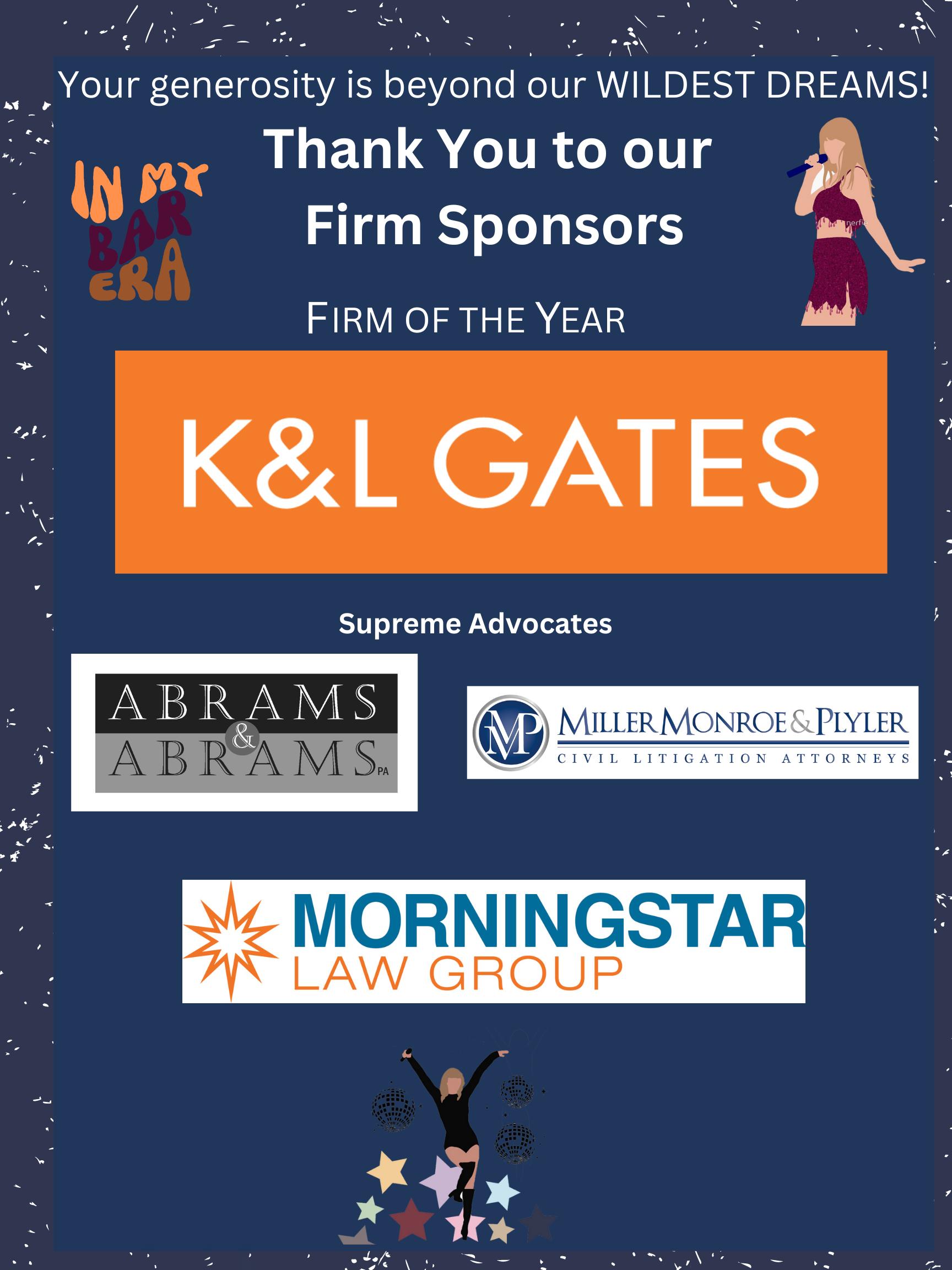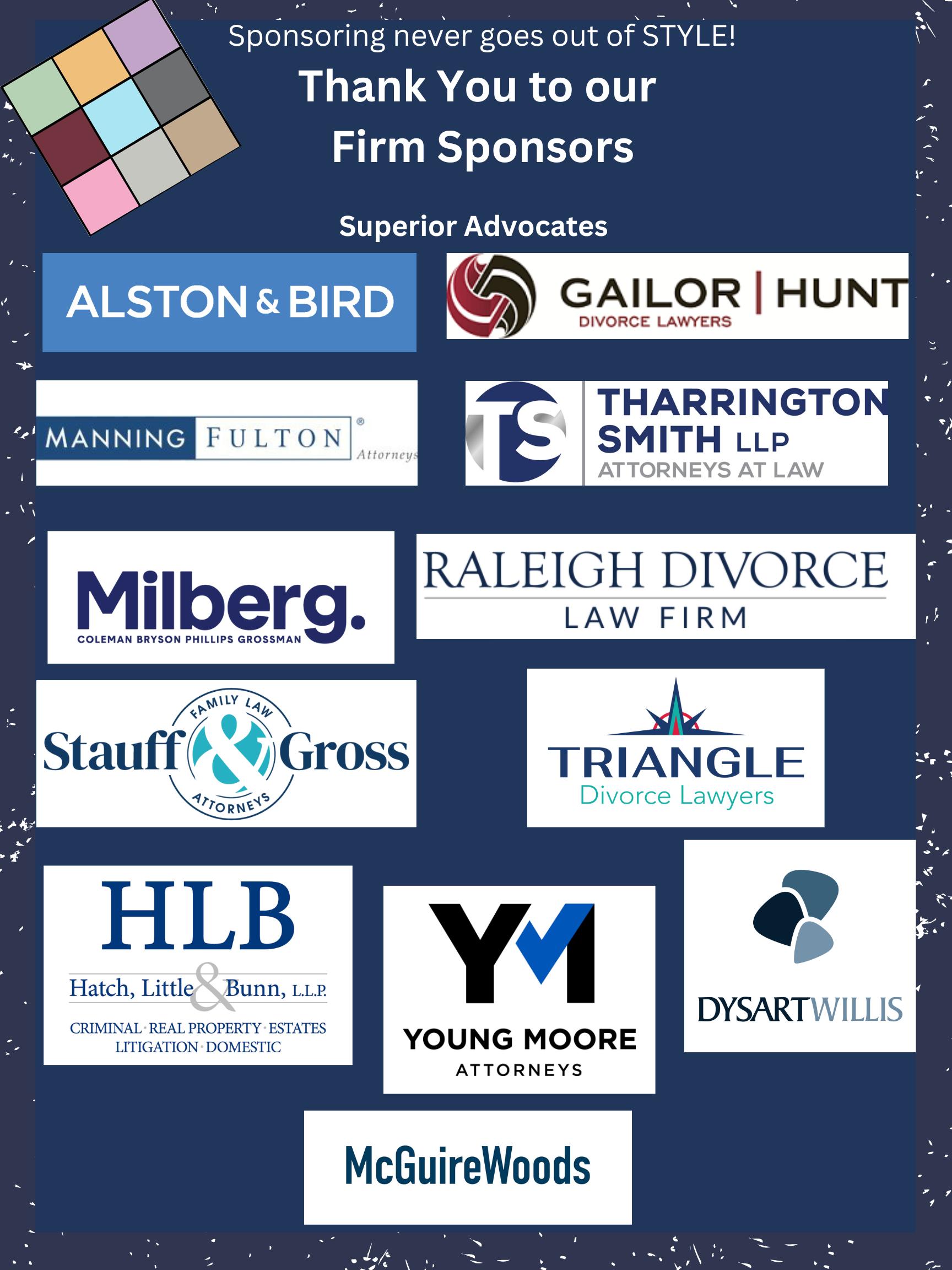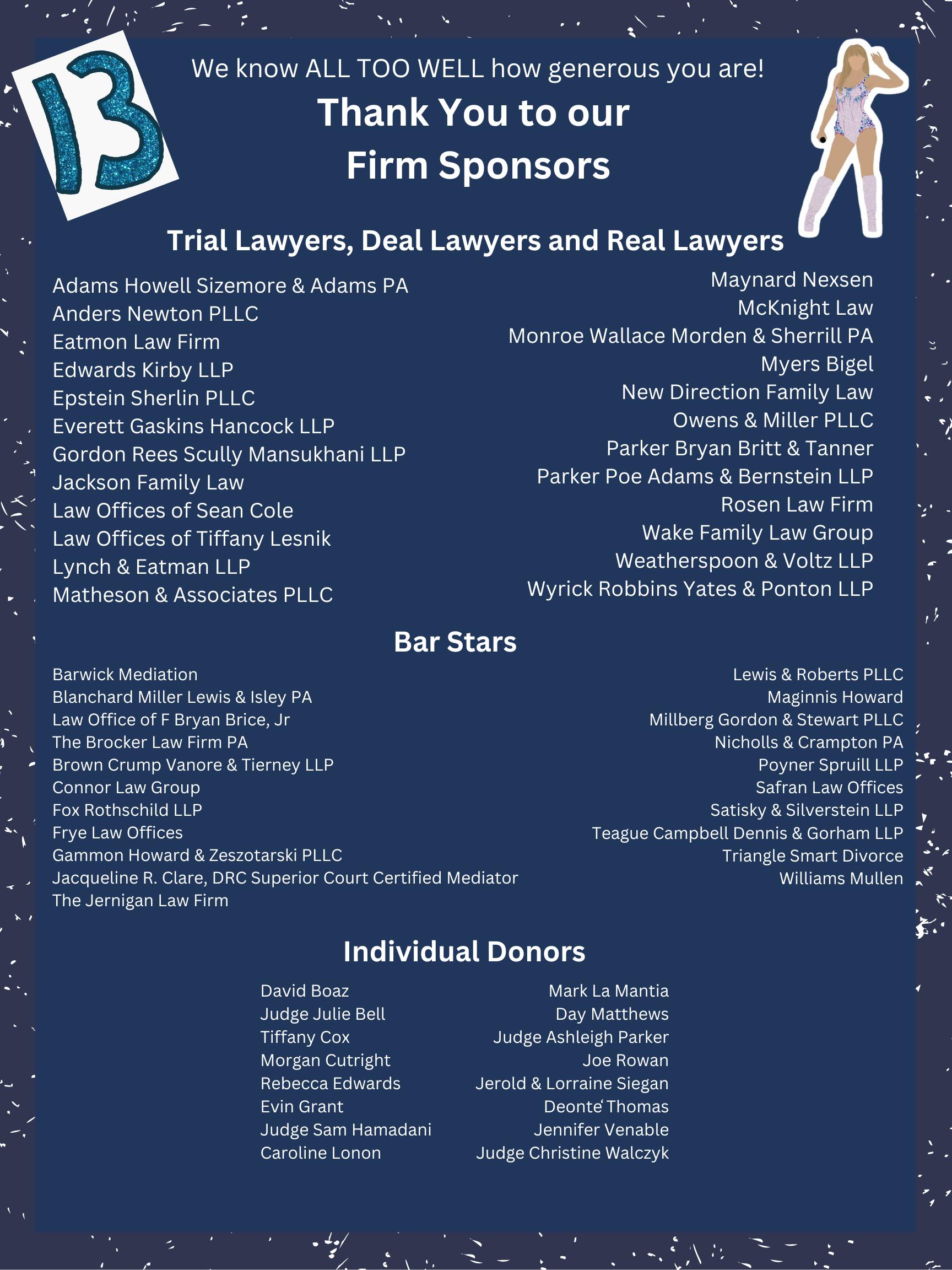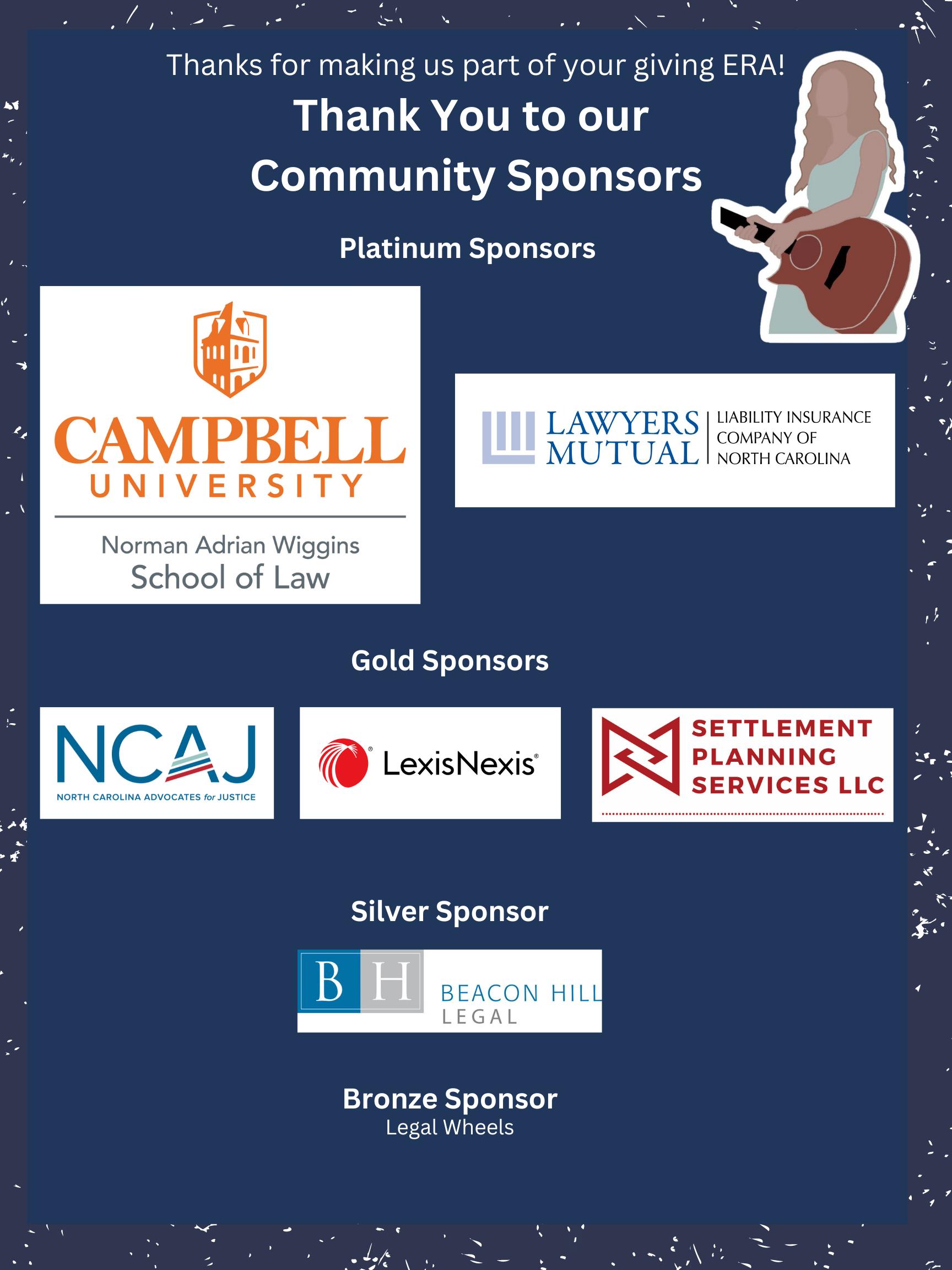BAR FLYER

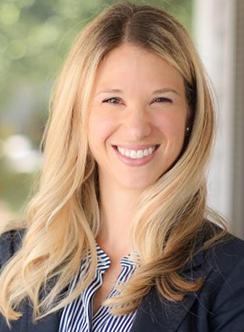
ENGAGING OUR MEMBERS
BY SARAH PRIVETTE | PRESIDENT WAKE COUNTY BAR ASSOCIATION
WE CAME OFF A big year last year as we as an organization worked hard to increase our impact both within the bar and the community. One of the highlights of last year was creating a dynamic strategic plan that I am excited to get the opportunity to work hard to implement this year. In the summer of 2023, I had the opportunity to attend the American Bar Association Leadership Institution in Chicago at the same time we were working on the strategic plan, and I have to tell you I came back more renewed than ever to jump into my presidency year.
Across the United States bar associations are struggling. Membership is shrinking, there are no clear leadership pipelines, there is lack of funds for programming and many county bars are fighting to keep the lights on. The Wake County Bar Association is in a unique position that few bar associations across the country find themselves in. We as a bar association are lucky enough not to be dealing with a lack of membership engagement or keeping the lights on, but rather we are in the fortunate position to be able to focus on our individual attorneys and the practice of law.
As we step into 2024, attorney wellness is the core of the strategic plan. Our practices thrive when we thrive, but let’s be honest being an attorney can encompass a whole host of adjectives from stressful and overwhelming, to obtuse and everything in between. As we move into 2024, there will be a focus on creating meaningful opportunities for the Wake County Bar Association not only to support the members of our bar but also assist in creating meaningful opportunities for us to support one another in our individual practices.
You will see this focus across our programming, events and the resources that are available to our membership. The practice of law today is not the same as the practice of law 20 years ago. By meeting the practice of law where it is today and working hard to find opportunities to build and maintain meaningful connections our bar will continue to thrive. I encourage you as you run, walk or crawl (depending on where you are at) into the new year, to think about what connections you have made, personally and professionally, through the practice of law and how those connections have shaped you and your practice today.
Whether you have been practicing two months or 20 years, law is not practiced in a vacuum and cannot be done without your colleagues. Consider what we can learn from those who have practiced longer than you but also those colleagues who are new to the practice. I encourage you to look at what energized you when you began your practice and how that has changed from your first years (or months) of practice.
If I reflect in my own practice on what energizes me and drains me, I always come back to the personal and professional relationships I have with my colleagues that keeps me doing what I do and the role that the Wake County Bar Association has played in helping me find and maintain those relationships. As you examine your journey, I encourage you to look at the strategic plan that outlines our goals as a bar association over the next three years and we look forward to continuing to be an active part of the journey. The strategic plan for the WCBA can be found here WBF
UPCOMING EVENTS
Learn Decisis CLE
Monday, February 26 | 11 a.m.
Coffee & CLE
Wednesday, February 28 | 9 a.m.
New Member Drop-In
Wednesday, February 28 | 4 p.m.
Healing Transitions Tour & Substance Use CLE
Thursday, February 29 | 2:30 p.m.
WCBA March Virtual Luncheon
Tuesday, March 5 | 12:45 p.m.
Learn Over Lunch: When Pregnant People Encounter the Justice System
Thursday, March 7 | 1 p.m.
INSIDE THIS ISSUE
2 A NOTE FROM THE EXECUTIVE DIRECTOR
7 WHEN WAS A TIME YOU FELT WELCOMED BY THE BAR?
8 COMMITTEE FOR DIVERSITY, EQUITY & INCLUSION: 2023 RECAP
9 BAR AWARDS APPRECIATION
11 DIRECT EXAMINATION
13 CREATING A WELCOMING AND GROWTH ORIENTED ASSOCIATION
16 WELCOME NEW MEMBERS


Career With Retired Chief District Court Judge Ned Mangum....................................4 VOL. LX • ISSUE 1 | FIRST QUARTER 2024 Visit our website: www.wakecountybar.org 919.677.9903 phone
Reflecting on a Judge’s

WAKE BAR FLYER
VOL. LX | No. 1 | FIRST QUARTER 2024
Presidents
SARAH PRIVETTE, WCBA
JAMES HASH, TENTH J.D. BAR
Presidents-elect
KIMBERLY TURNER MILLER, WCBA
JAKE EPSTEIN, TENTH J.D. BAR
Secretary
TIFFANY COX
Treasurer
ELYSIA PRENDERGAST-JONES
Immediate Past President
JUDGE ASHLEY PARKER, WCBA & TENTH J.D. BAR
Board of Directors
KRISTEN L. BEIGHTOL
DAVID R. BOAZ
TARA CHO
APRIL GIANCOLA
JORDAN GROSS
JESSICA HEFNER
LEANOR B. HODGE
JOHN HOOMANI
GABE JIMENEZ
ERIKA N. JONES
JENNIFER M. JONES
DEAN J. RICH LEONARD (EX OFFICIO)
WILL OWENS
STEPHANIE N. ROBINSON
KENDRA STARK
JUDGE CHRISTINE WALCZYK
Young Lawyers Division President
CARLY G. BAKER
Executive Director
WHITNEY D.G. VON HAAM
Communications Manager
AMY DAVIS
Wake Bar Flyer Designer
ANNE R. STRICKLAND
Tenth Judicial District Bar Councilors
JULIE L. BELL
WALTER E. BROCK, JR
ASHLEY H. CAMPBELL
NANCY L. GRACE
EVIN GRANT
KIMBERLY A. MOORE
JUDGE ROBERT B. RADER
WARREN T. SAVAGE
© 2024 Wake County Bar Association & Tenth Judicial District Bar.
INTRODUCING DECISIS
BY WHITNEY D.G. VON HAAM | WAKE COUNTY BAR ASSOCIATION
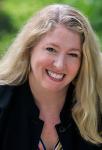
I BECAME MEMBERSHIP DIRECTOR at the North Carolina Bar Association more than 20 years ago, and when I was hired, my most pressing order of business was spreading the word about a new online legal research tool that was being offered, Casemaker. I drove to every nook and cranny in the state of North Carolina shouting from the rooftops about this new member benefit, and leading lawyers and paralegals through basic training on how to use the tool.
At that time, computers weren’t located on the desk of every lawyer, and no one had a phone that could order their groceries, check their bank statement and provide hours of entertainment through music and videos. At some of the trainings, lawyers didn’t even understand how or what a “mouse” was, let alone how to use it to scroll across the page. It was a real learning curve.
Clearly, we are all in a different place now. We are a nation well versed in how to get on a Zoom, and most of us have multiple apps on our phone that can provide a hot dinner to our front door within the hour. And, I’m going to wager a guess that very few desks of lawyers are without a computer; heck, there are probably few that don’t have two monitors!
The legal research business has changed as well – the old Casemaker that the NCBA offered merged with their top competitor, FastCase, creating a competition hole in the marketplace, because as we all know, competition is healthy for inspiring growth, cost effectiveness and inspiration. LexisNexis stepped up to this challenge, and created a product for Bar Associations that has gained a lot of attention: Decisis.
I am thrilled to share that we began providing Decisis, a legal research tool included as part of your WCBA membership, in early February, and the feedback that we have begun receiving has been very positive. For lawyers that need reliable research, but don’t want a pricy option eating away at the bottom line, Decisis can be a lifesaver.
I hope you will give Decisis a try – the log in information that you use for our website also works for the Decisis link on our website. We’re also very excited that the North Carolina Pattern Jury Instructions are being added to the robust research options that Decisis touts. WBF
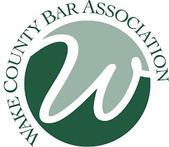
A fast & reliable legal research tool is now available, for free, to Wake County Bar Association members.
. Search all 50 State Courts and Federal jurisdictions.
How Decisis stands out from its competitors:
• Intuitive Google-like interface that allows you to seamlessly scan search results
• Split-screen functionality that enables simultaneous viewing and easy navigation between search tabs and the main search screen
• Three ways to search: Type in key terms, use search operators, or search by citation
• A world-class citator with superior reliability
• Enhanced customer support – available 7 days a week, offering both research and tech assistance
• Tailored search filters to pull highly relevant results
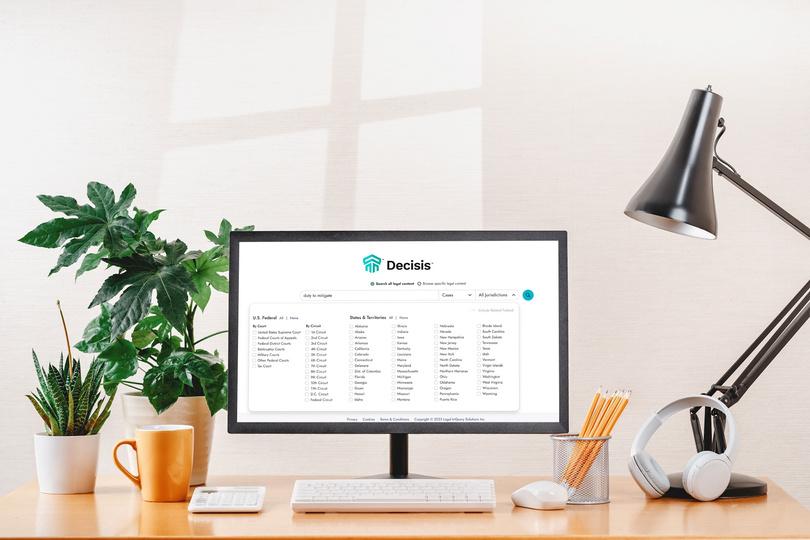
New in 2024

REFLECTING ON A JUDGE’S CAREER WITH RETIRED CHIEF DISTRICT COURT JUDGE NED MANGUM
EVOLUTION OF THE SYSTEM
When you started your career in Wake County, what were the biggest challenges facing the district court system? Believe it or not, physical space was a huge issue. When I started in 1998, The Courthouse was already terribly cramped. Opened in 1970, the Wake County Courthouse, like many others, was not able to keep up with the tremendous growth we have seen. We are fortunate the Wake County Commissioners funded the Wake County Justice Center, remodeled most of the old courthouse and built the Wake County Detention center.
We now have facilities we can be proud of. The question going forward will be how long the new facilities will keep up with the demand for services, which are growing exponentially. It is the same question we face with our schools, hospitals and roads.
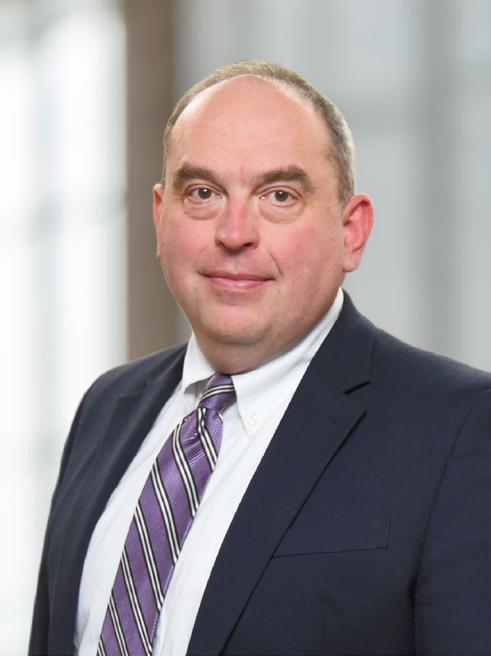
Looking back, what would you say have been the most significant changes in the legal landscape of Wake County and the Tenth Judicial District during your time on the bench? The impact of the pandemic and the implementation of electronic filing with eCourts are the two biggest changes we have faced. Other, more subtle changes are that we now take a different approach to mental health and substance abuse issues than we once did. Keep in mind that the court system must deal with every possible social issue you can think, including mental health, substance abuse, poverty and others. We now have a better understanding of how these challenges affect the people we serve.
In your opinion, what technological advancements have had the most profound impact on the court system and how it operates? Again, eCourts is a big one, but you cannot overlook how smart phones have changed the game. When I got here, people used quarters at pay phones to make a call. The next thing was a few lawyers had a “Nextel.” Now we live in an era of instant communication by phone, text, social media. To poke fun at former DA Colon Willoughby, I remember when he was resistant to the DA’s office getting a fax machine.
WHERE WILL WE GO NEXT?
Have you observed any shifts in public perception of the judiciary during your career? If so, what factors do you think contributed to these changes? (Explore media portrayal, high-profile cases, etc.) Back in the day, reporters for the News and Observer, WRAL and WTVD were always around the courthouse. They had the time and resources to cover stories in much greater depth. That’s just not the case anymore as their industry has changed so much. Frankly, now there is very little meaningful coverage of the courts in traditional media and the perception of the courts is often, rightly or wrongly, determined by someone’s tweet or TikTok.
REFLECTIONS ON LEADERSHIP
What principles did you consider most important in guiding the district court as Chief Judge? No matter how many times you have heard the type of case in front of you, it is likely that the people in front of you are scared and anxious. They are in unfamiliar surroundings. Judges must treat each case and each person with patience and respect. Or to put it differently, take your cases seriously not yourself.
What were some of the most difficult decisions you had to make as Chief Judge, and how did you approach them? At the individual case level, the decisions that affect children weigh the most. Things like deciding temporary custody always come with an enormous responsibility. Our decisions can have a huge impact on a child and, unfortunately, we often must make those decisions based on limited information.
Looking at the entire system, the Chief District Court Judge is constantly faced with this question: How do we ration our court resources? For example, do you open a new DWI Courtroom to deal with a backlog of impaired driving cases or do you open another courtroom to hear child custody matters? You need both, but unfortunately the Chief usually can’t do both.
I was happy that Chief Justice Paul Newby selected Judge Margaret Eagles to be our next Chief. She has the knowledge and experience to deal with these kinds of tough questions.
Looking back, what advice would you give to your younger self embarking on a legal career? Great question! I tell this to my three boys – you never know when you will be called to lead. That moment will happen for all of us. It might not be today or anytime soon, rest assured that call will come. You need to be ready!
Ned Mangum, former Chief District Court Judge
PAGE 4 WAKE BAR FLYER • FIRST QUARTER 2024
CONTINUED ON NEXT PAGE

REFLECTING ON A JUDGE’S CAREER WITH RETIRED CHIEF DISTRICT COURT JUDGE NED MANGUM, CONTINUED
FUTURE OF THE COURTS
What do you anticipate will be the biggest challenges facing the district court system in the next decade? It is critical that the Tenth Judicial District has the clerks, ADA’s, PD’s, magistrates and judges to stay on top of it all. The cases the District Court hears are more complex and more numerous than they once were. Technology will help. Nevertheless, the core function of the justice system depends on people making difficult decisions. A computer can’t do it for them.
In your opinion, what are some potential areas for improvement or innovation within the judicial system? Wake County was selected to be a pilot county for electronic filing. It’s hard to express how complex of a challenge going from a system of paper one day to all electronic the next. To say it was a radical shift is an understatement. We have come a long way with it from where we were a year ago, yet there is still plenty of room for improvement in areas such as high-volume criminal courtrooms and real estate.
As you step down from the bench, what are your hopes for the future of the judicial system in Wake County and the Tenth Judicial District? When I started in 1998, the Wake County Bar was much smaller than it is today and I just missed the days when everyone met at the Belk’s cafeteria for lunch. What I did see were lawyers that fought hard in their cases, but treated each other with professionalism and respect.
We now have almost 6,500 lawyers in the Tenth Judicial District Bar. We have two large courthouses. We electronically file documents. We communicate by email or text rather than a phone call or a face-to-face conversation. We are welcoming a new generation of lawyers that grew up learning from a screen. While all these changes are great in many ways, we must challenge ourselves to get to know the lawyers that practice here. We must challenge ourselves to act with the same level of professionalism that Earle Purser, George Anderson and Robert McMillan expected from me when I was sworn in 1998. WBF

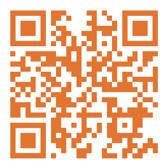
PAGE 5 WAKE BAR FLYER • FIRST QUARTER 2024
Local Solutions. Global Reach.
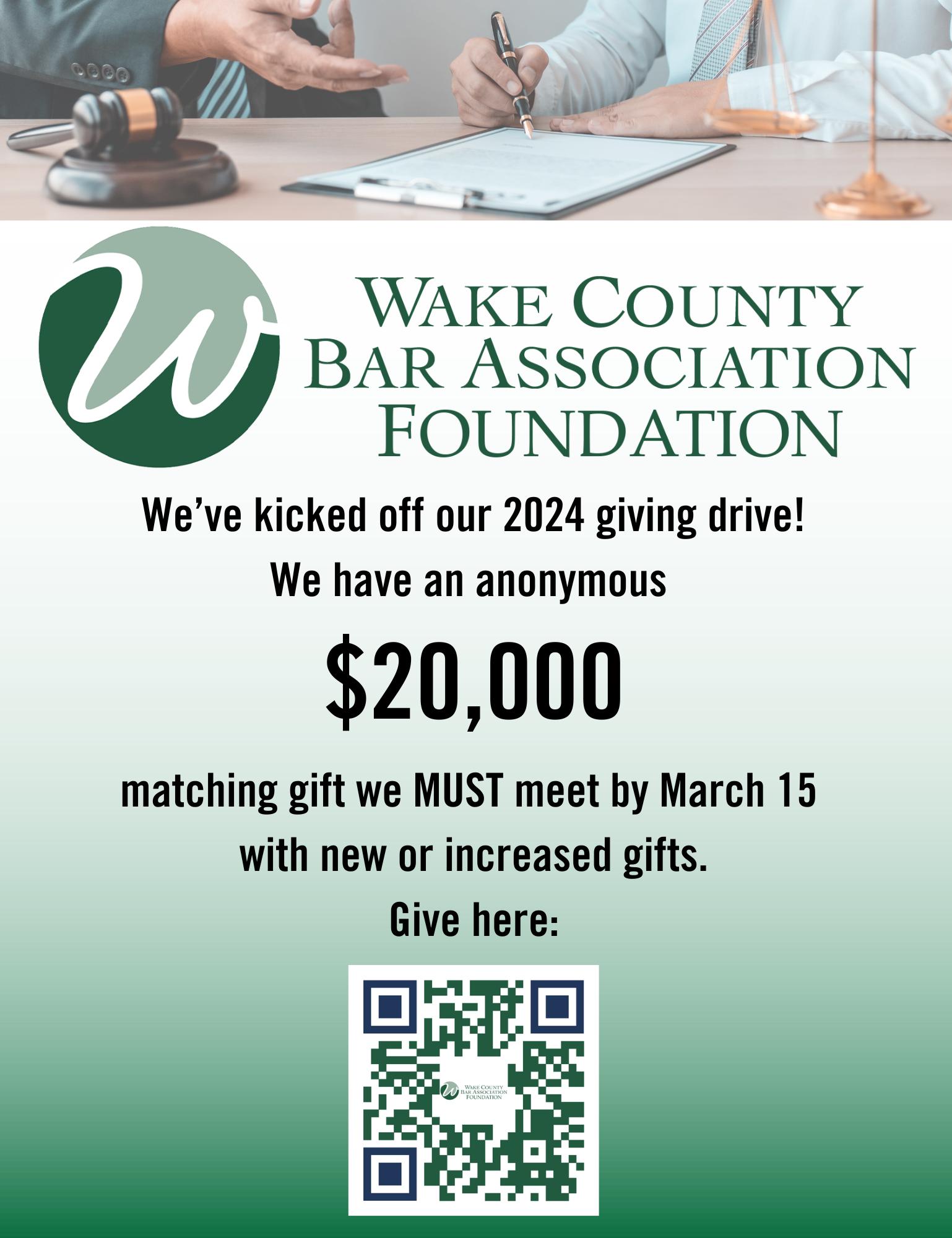

WHEN WAS A TIME YOU FELT WELCOMED BY THE BAR?
WE ASKED SOME WCBA MEMBERS ABOUT ENGAGEMENT AND COLLEGIALITY WI THIN OUR BAR.
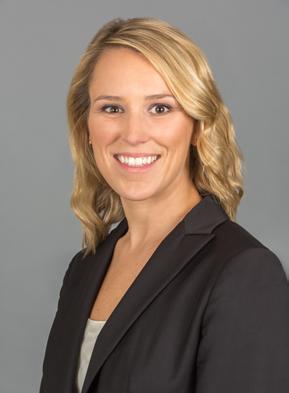
MELISSA ABRAMS, ABRAMS & ABRAMS PA
“The annual Wake County Bar Awards benefiting Legal Aid stands out as a beacon of camaraderie and purpose within the WCBA community, marking a time when I feel most welcomed and engaged with my local bar association. It’s during this event that the collective determination to support equal access to justice becomes palpably shared amongst peers, transcending our day-to-day adversarial roles and reinforcing the foundational principles of the legal profession. The collaborative efforts and the overall fun atmosphere foster a sense of inclusivity, allowing me to connect with colleagues on a mor e personal level. This gathering not only ignites a sense of professional belonging but also reaffirms our collective commitment to the broader community and the common good we strive to serve as legal practitioners.”
JUDGE JULIE BELL, DISTRICT COURT JUDGE
“I have always felt welcomed at the May Picnic. Eating outside, talking and laughing with each other with no formal program has always been inviting.”
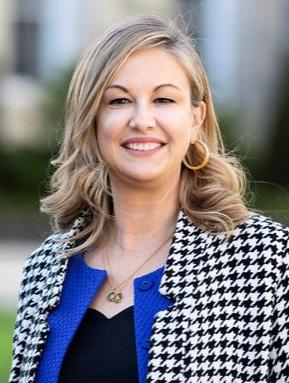
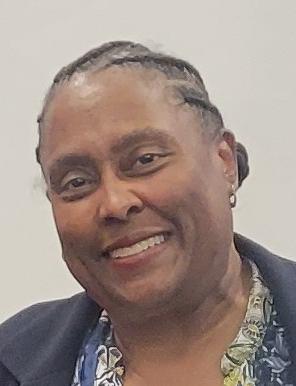
ANNA DAVIS, RALEIGH CITY ATTORNEY’S OFFICE
“We have such a collegial, friendly bar that it is easy to feel welcome at our events. Whether playing a sport together, volunteering alongside other lawyers for a nonprofit, taking advantage of our lawyer support resources or socializing at a bar party, there is a way for all WCBA lawyers to connect and feel community and kinship as a profession.”
JANE GRAY, RETIRED DISTRICT COURT JUDGE
“I felt welcomed by the Wake County Bar when they voted for a government lawyer for the board and then encouraged me to put my name in nomination for president. Women trial attorneys were still few and far between in the ‘80’s and ‘90’s and the WCBA gave me an opportunity to demonstrate I had leadership skills. Even though I am retired, I value the friendships of my colleagues, and the WCBA helps keep us in touch.”
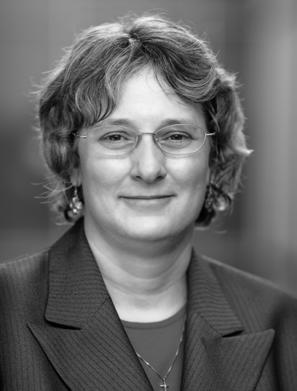
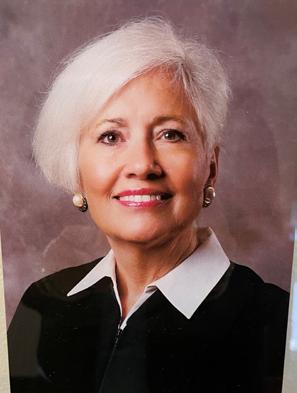
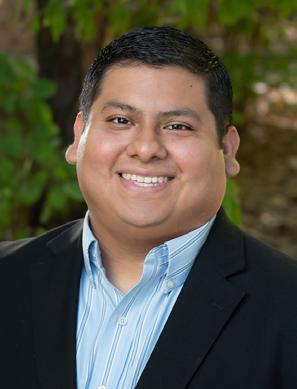
JOSUE JIMENEZ, DUKE UNIVERSITY SCHOOL OF LAW
“The first WCBA event I ever attended was a YLD social. When I arrived, I was immediately welcomed by everyone and one of the executive board members introduced me to everyone he knew. I immediately felt like I had a community, as well as some mentors who were only a few years removed from what I was going through as a new attorney. This motivated me to get involved with the YLD as soon as I cou ld and help in creating a welcoming environment for new attorneys each year .”
KATIE H. KING, WAKE FAMILY LAW GROUP
“The times I have felt most welcomed by the bar were when I have been personally invited to participate in a committee or event. It’s one thing to sign up for a committee or activity that looks interesting—it’s another thing for a colleague to take the time to say ‘you may really enjoy this’ or ‘I hope I see you there’ or ‘you would be a good fit for this group.’ When people feel seen, they cannot help feeling a sense of belonging.

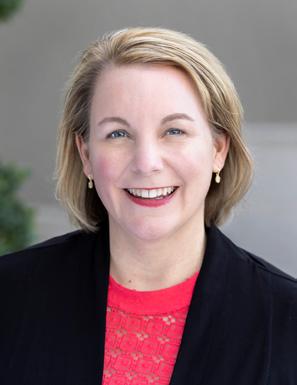
TRYNITY OJEDA, MARSHALL & TAYLOR PLLC
“One of the times I’ve felt welcomed by the bar was when I attended my first WCBA luncheon as a freshly sworn attorney. I had been a little nervous about not knowing anyone, but I found an open spot at a table with some attorneys who were already carrying on a light conversation and seemed to know each other more than passing acquaintances. They seamlessly joined me into their conversation and my nervousness evaporated. Later, I found out that had been the f irst time the other attorneys had met, and I was grateful for the WCBA’s congenial membership.”
MONICA WEBB-SHACKLEFORD, NORTH CAROLINA UTILITIES COMMISSION
“I have always felt welcomed by the bar. The monthly luncheons are a great time to connect with other attorneys in the area. I also look forward to the holiday party each year – I find it to be a warm and inviting experience.” WBF
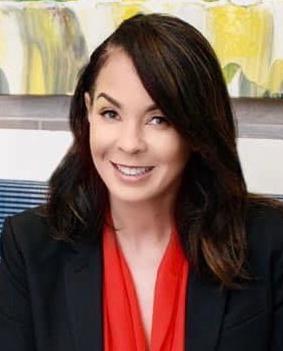
NAN HANNAH, HANNAH SHERIDAN & COCHRAN LLP
“Any time I attend a WCBA-sponsored event. Our members are incredibly inclusive and welcoming to new and/or young lawyers.”
PAGE 7 WAKE BAR FLYER • FIRST QUARTER 2024

COMMITTEE FOR DIVERSITY, EQUITY & INCLUSION: 2023 RECAP
BY EVIN GRANT | NC DEPARTMENT OF ADMINISTRATION
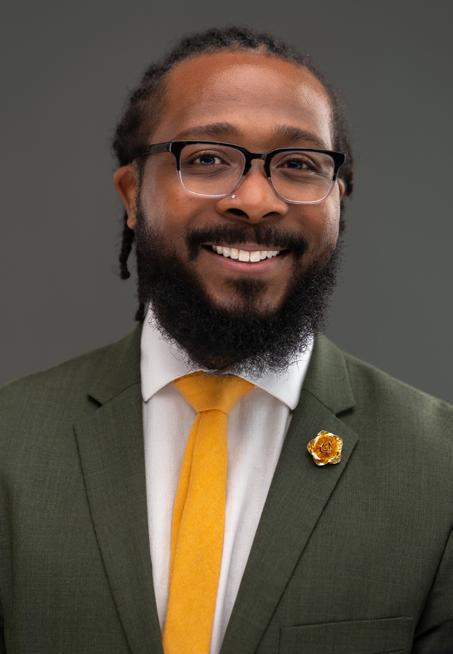
THE WAKE COUNTY Bar Association Committee on Diversity, Equity, and Inclusion (CDEI) experienced a successful 2023. Coming off of the heels of a 10year celebration of the CDEI in 2022, we saw renewed interest in the work of the committee, with several new members and a lot of first-time chairs. Through the dedication and commitment of our member volunteers, we were able to host and participate in several initiatives in 2023 that highlighted the great diversity of our bar.
Our committee members were active this year. Several Bar Flyer articles were written by CDEI members on various topics that relate to our profession. We also hosted or partnered on several initiatives throughout the year.
In July 2023, the DEI Committee hosted a gathering at the NC Museum of Art on Blue Ridge Road to view the Ruth E. Carter: Afrofuturism in Costume Design. Several WBCA members attended to view the history and creative processes for fashion pieces from famous films like Black Panther, Malcolm X, Selma, and Do the Right Thing.
Also in July, CDEI members participate in the Campbell Law School “Lunch with a Lawyer Program.” This program serves as an opportunity for students who may not know lawyers in their personal lives to meet with and ask questions of lawyers from their communities. Representation is important when meeting with students, so they might see themselves in us. CDEI members spoke on panels or mingled with the students during lunch to talk about who they are, what they do and how the students’ interests align.
Each year, CDEI members willingly sign up to assist in the WCBA Swearing-In Ceremony. This is extremely important when there are new attorneys who may come from another jurisdiction or do not have a personal connection to an attorney in Wake County to sponsor their motion to the court. The Fall of 2023 Swearing-In Ceremony saw a great turnout of new attorneys and an even greater reception of CDEI attorneys who stood in to sponsor. The attendance of CDEI members gave many of the new attorneys someone in the bar to connect to and learn more about the CDEI and how we strive to create a diverse and inclusive bar.
In addition to these programs, we experienced great diversity in the speakers serving on panels or leading breakfast and lunch CLEs. Our annual ethics problem touched on issues of diversity that require true self-awareness and deep thinking about the impact of choices based on our perceptions of others. Along with a CLE planned for February 2024, the committee will continue to provide opportunities for education, inclusion, participation and transformation.
2023 was a transformative year as we participated in various activities and engagement opportunities for the diversity of our bar. We recognize that 2024 will be a challenging year as we continue to see attacks on diversity, equity and inclusion initiated across the nation, in academia, the corporate sector, and with public and nonprofit organizations. We know our bar association is not immune to these attacks.
However, this demonstrates the importance and necessity of continuing to educate those who continue to find opposition to DEI initiatives. As a bar, we need to intentionally create inclusive spaces for all our diverse attorneys. As well as provide a safe space for our attorneys, both recently admitted and those who have paved the way.
The CDEI will continue to engage with all of its members and continue to provide activities, events and education so that every attorney in Wake County feels included. In a profession with roots in exclusionary practices and tactics, historically limiting the accessibility of who can call themselves a lawyer, it is imperative that the CDEI continue to uplift all of the members of the bar, to best represent the diversity of the people we serve. WBF
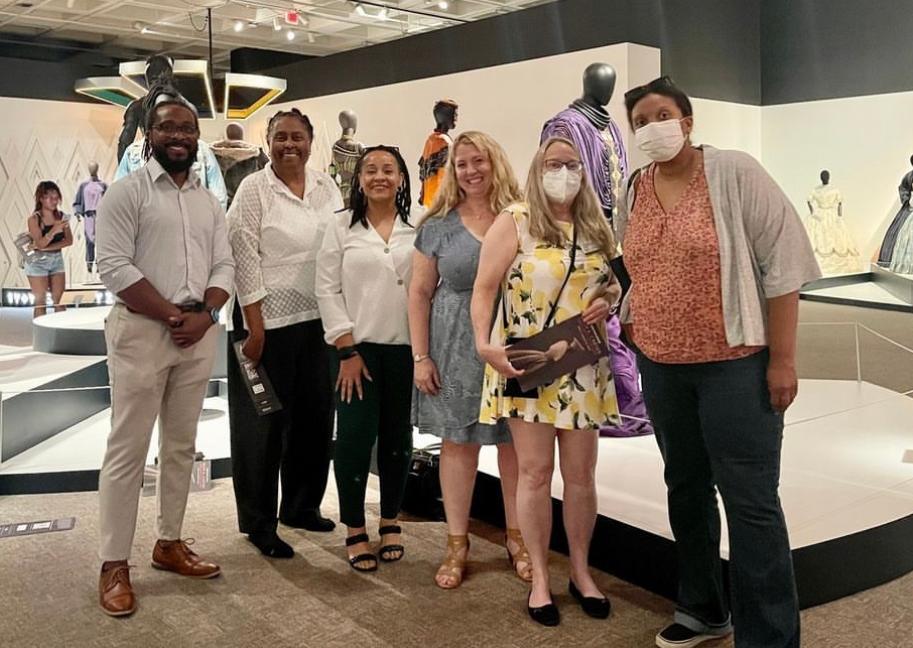
PAGE 8 WAKE BAR FLYER • FIRST QUARTER 2024
Grant

A MILLION THANKS TO LEGAL AID
BY HELEN HOBSON, LEGAL AID OF NORTH CAROLINA
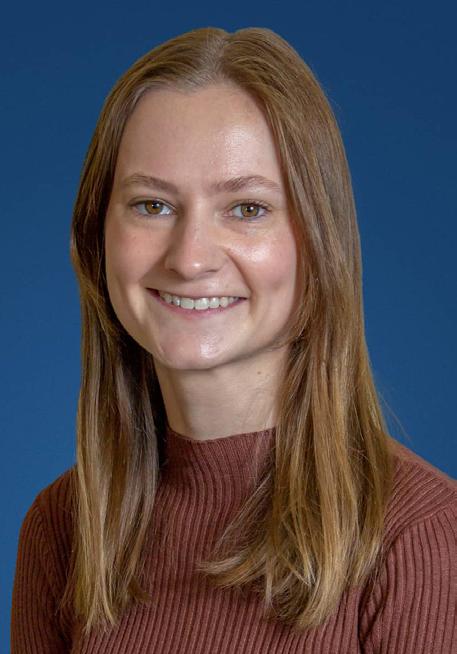
EACH YEAR, THE Wake County Bar Awards serves as a gathering of legal professionals from Wake County, uniting to recognize outstanding achievements and contributions within our legal community. Yet, beneath the glamour of this event lies a deeper purpose that supports our mission at Legal Aid of North Carolina. The funds raised at the Bar Awards form a pillar of support for our organization, empowering us to extend our reach and provide essential legal services to those who might otherwise be denied access to justice. From assisting low-income individuals facing eviction to aiding survivors of domestic violence seeking protective orders, these funds enable us to confront a myriad of legal challenges.
For many of the individuals we serve, the assistance we provide represents a lifeline—a chance to navigate a complex legal system. Without the generosity of partners like the Wake County Bar Association and the Wake County Bar Association Foundation, fulfilling this mission would be an uphill battle.
In 2023, the Wake County Bar Awards achieved a milestone, surpassing the $1 million mark in support of Legal Aid NC. This stands as a testament to the dedication of volunteers and the generosity of donors whose collective efforts have transformed the lives of countless individuals in our community.
The impact of the funds raised at the Wake County Bar Awards reverberates throughout our organization. With these funds, we strengthen our programs, recruit and train attorneys and invest in innovative initiatives addressing emerging legal needs within our communities.
The Wake County Bar Awards not only provide financial support but also raise awareness of the unmet legal needs of low-income residents in Wake County. This awareness is pivotal in deepening the pro bono support we have long received from Wake County lawyers.
In collaboration with the WCBA, Legal Aid NC hosted two Lawyer on the Line clinics last year. These clinics, held in June and December, saw volunteers providing legal advice over the phone to clients grappling with poor housing conditions.
Raleigh attorney Mary Slade Duke, who organized the June clinic as a member of the WCBA Public Service Committee, praised her colleagues for their
commitment to pro bono service. “Everyone at the WCBA is really invested in giving back to the community. At committee meetings, there are a ton of people volunteering to lead projects and everyone offers new ideas. People want to get involved.”
If you want to get involved with pro bono at Legal Aid NC, visit legalaidnc.org/ pro-bono to learn about our programs, fill out our interest form, join our email list and contact our Pro Bono Programs team. You can also visit probonogo. org, NC’s new one-stop shop for pro bono opportunities from our state’s leading civil justice organizations, including Legal Aid NC. We can’t wait to work with you!
On behalf of all of us at Legal Aid NC – from the Raleigh office and beyond –we extend our appreciation to the WCBA for their longstanding partnership and the annual effort to organize a memorable and successful event. Thank you for your support! WBF
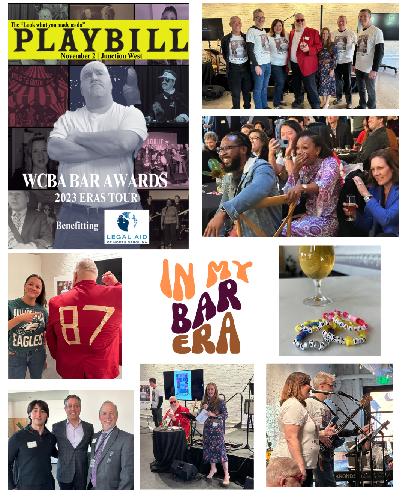
PAGE 9 WAKE BAR FLYER • FIRST QUARTER 2024
Hobson
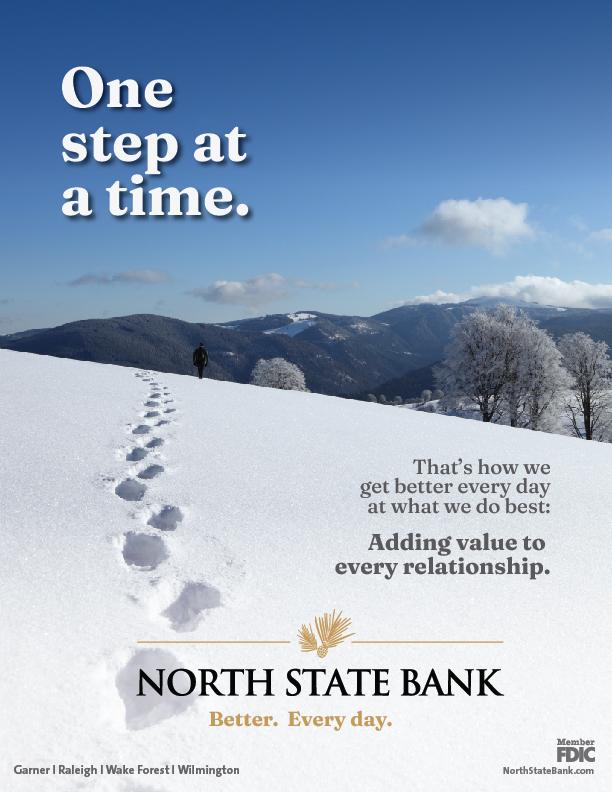

DIRECT EXAMINATION: KATHERINE FRYE
DIRECT EXAMINATION IS THE FIRST opportunity for the jury to meet a witness. An effective lawyer will use the opportunity to personalize the witness, making the witness appear both likeable and credible. At the end of the day, the direct examination is a party’s best chance to tell his or her story. This is the story of Katherine Frye of Frye Law Office.
1.When you were in elementary school, what did you want to be when you grew up?
I wanted to be a lawyer. My family always commented that “you should be a lawyer” based on my tendency to argue about most things and get in trouble at school for talking too much.
2.What was the most important lesson your parents taught you?
Reputation is everything. You only have one reputation, and once it is lost, it will be hard to regain it.
3.Who was your favorite teacher and why?
In hindsight I had two, but they both were my favorites for the same reason. One was in high school and one was in college—they both challenged me to do better, and they both believed in me more than I believed in myself. Even though my work would have warranted an “A” (for example), both teachers told me that what I provided in work product wasn’t an “A” level for what I was actually capable of in each class.
4.Did you love or hate law school?
Loved it!
5.What was your most embarrassing courtroom experience?
There was a court date that did not make it on my calendar. I was called by the clerk to ask if I was coming to court or not. I had to go to court immediately in less than professional attire. I arrived to court late, disheveled and embarrassed. Even though I won my argument, I was completely embarrassed. The opposing attorney asked for sanctions due to my being late to court. The judge denied the motion. Both of us were young lawyers, and the judge took some time to teach us a lesson about professionalism balanced with advocacy for our clients.
6.What was your best courtroom experience?
This question is difficult for me because if I am performing my job as a family lawyer well, my case never sees the inside of a courtroom. For me one of my best experiences was coming up with a phrase on the fly that made the judge (who had the best poker face) start laughing. I may be one of the only lawyers to have ever made this judge laugh in open court.
7.Why did you become a lawyer?
I just always knew I wanted to be a lawyer. Yes, I wanted to help people (like most others who pursue this career), but I had also been raised in a small town in NC where lawyers were held in high esteem as professionals. I take my responsibility to be a professional sincerely and believe that lawyers set the standard for the respectful societal discourse.
8.What has been the most surprising or unexpected development in your career?
I never wanted to be a family lawyer, so my having that as my exclusive practice area was not the original plan.
9.What is your favorite book?
I have too many favorites!
I can say that of late I enjoyed Mating in Captivity by Esther Perel because of the thought provoking discussions that can be had about the book. I also have to recommend Sammy’s Hill by Kristin Gore because the main character is hilarious. I laughed out loud for most of that book. Finally, for my grammar nerds, I have to suggest Eats, Shoots and Leaves: The Zero Tolerance Approach to Punctuation, by Lynn Truss.
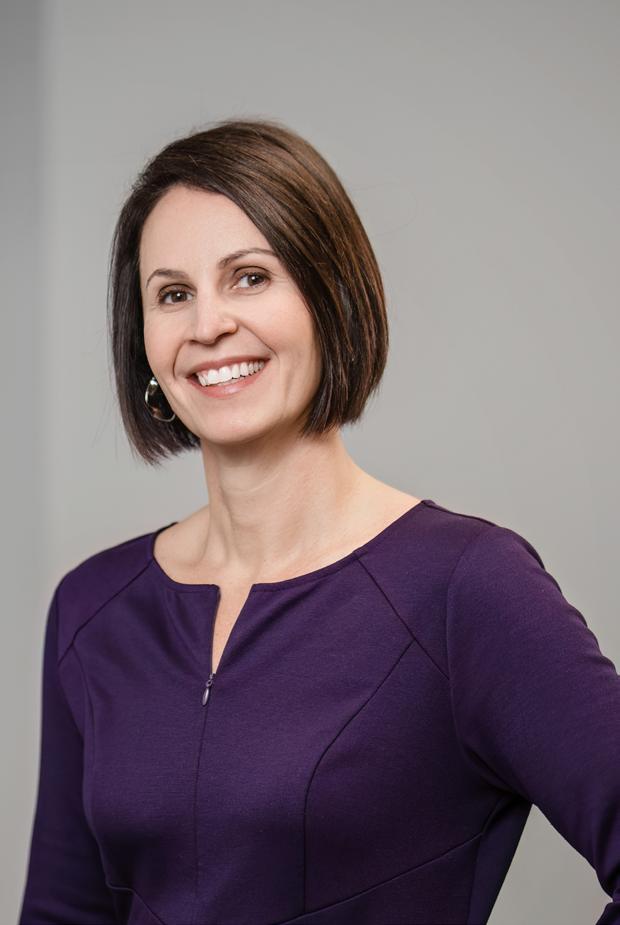
10.What is your most marked characteristic?
Being calm.
11.What is your hidden talent?
My ability to quote from A Few Good Men.
12.Who are your real-life heroes?
Leaders like Whitney von Haam and Ashley Campbell are some of my real life local heroes.
Whitney gave me my first chance to participate in the profession in a meaningful way. She took a chance on me, and I would like to think that I have never let her down. She taught me how to serve the profession, how to look for others who could benefit from the same chance that she gave me, and how to be a better more effective leader.
Ashley has helped me see how I can incorporate my daughter into my service of the profession. She also demonstrates someone who embraces challenges with a smile, and someone who embodies the concept of “not mistaking my kindness for weakness” along with a devilish sense of humor. Finally my daughter is a real life hero to me in that she has already battled through challenges in life and demonstrated a resilience that I wish I had at her age. She also has worked hard to become more self-aware as a teenager than I am in my late 40s. Her ability to know herself and lean into life is a courage I hope to have in my 50s.
13.When and where were you happiest?
There are so many times that I have been happy for various reasons in my many years on this earth. I will say in the most recent past I was the happiest on a vacation with my daughter where we were spending some quality time together and had to discuss whether or not I would accept the nomination to be the Vice President of the NC State Bar. I needed my daughter to be on board with my taking on this significant professional commitment, and the discussions I had with her over that vacation were probably some of the happiest times of the last few years. WBF
PAGE 11 WAKE BAR FLYER • FIRST QUARTER 2024
Frye
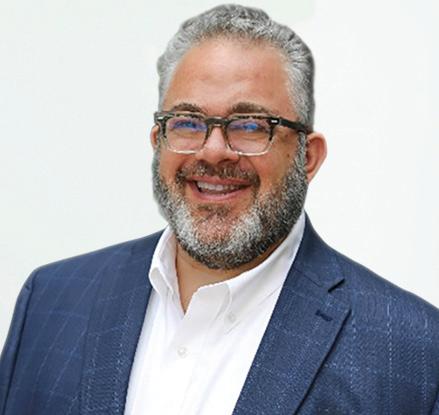
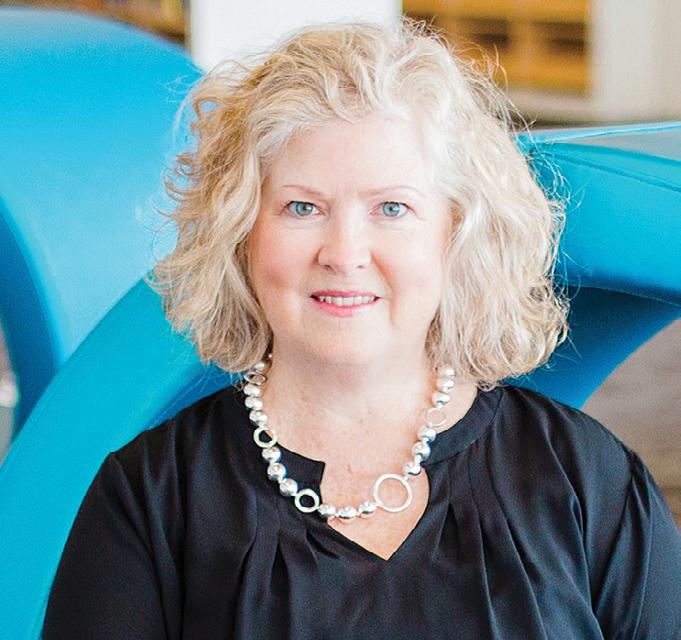
Lawyers Mutual is more than a policy. No matter where you are in your law practice journey, our practice advisors are here to help you. From starting your own law firm to managing your practice to planning for retirement, Lawyers Mutual has you covered. LML insureds can work one-on-one with Camille and Erik by phone, video or email. As an added benefit of Lawyers Mutual coverage, insureds may have three consultations each with Camille and Erik annually at no cost. Now, that’s LM Value! Lawyers Mutual NC — Your best source for a better
919.677.8900 800.662.8843 www.lawyersmutualnc.com
Supporting the life span of your practice FREE Practice Management Services for Insureds Succession Planning • Comp Plans Path to Partnership Firm Start Up • Legal Tech Law Firm Management ERIK MAZZONE CAMILLE STELL LIABILITY INSURANCE COMPANY OF NORTH CAROLINA LAWYER S MU TUAL FROM
insurance experience.
STARTUP — TO — WIND DOWN

CREATING A WELCOMING AND GROWTH ORIENTED ASSOCIATION
BY CAMILLE STELL | LAWYERS MUTUAL CONSULTING & SERVICES
MEMBER ENGAGEMENT IS the lifeblood of any association. It goes beyond mere participation; it involves active involvement, contribution and a sense of belonging among members. Engaged members are more likely to derive value from their association experience, leading to increased satisfaction, loyalty and advocacy.
In Sarah Sladek’s book, The End of Membership as We Know It, she says, “Technology has been a game-changer, giving people access to networks and information without the assistance of associations. Yet, the hurdle that technology poses pales in comparison to the generational shift that’s about to occur in the 21st century.
“From now until 2030, every eight seconds someone will turn 65. This shift in human capital – the largest shift in our country’s history – poses the greatest threat to associations because most associations remain entirely governed and supported by the Baby Boomer generation, and few have or are developing strategies to cushion themselves from this massive exodus of board members, committee chairs, and dedicated volunteers. According to BoardSource’s Nonprofit Governance Index, only two percent of board members are under 30 years old.
“Coupled with social changes that have emerged in the last 20 years, such as work-life balance and a societal movement away from conformity towards individuality, we now have generations with dramatically different needs, values, wants and expectations.
“Like it or not, joining an association doesn’t necessarily top the next generation’s list of things to do.”
Just a quick comment on generational differences and how they impact association membership and engagement. Baby Boomers are driven by sacrifice, loyalty and the opportunity to serve.
Younger generations want to connect themselves with a cause that inspires them and have a meaningful, engaging experience.
These are not mutually exclusive options. Building an inclusive and welcoming culture within associations is key to fostering member engagement, ensuring long-term sustainability and promoting the overall success of the organization. An inclusive culture not only attracts diverse members but also retains them by creating an environment where all individuals feel valued, respected and connected.
Let’s discuss strategies for cultivating a welcoming atmosphere within associations:
BUILDING A SENSE OF COMMUNITY
Associations are, at their core, communities of individuals with shared interests or goals. Fostering a sense of community is essential for member engagement. Engaged members perceive the association as a place where they belong, share common values, and can collaborate with others who understand and
appreciate their perspectives. This community is a place to meet people, find solutions to their problems or to create solutions for problems outside of the association, of which there are many when viewed in the lens of those needing legal services. Community gives meaning to the association.
VALUE PROPOSITION
Members engage when they see a clear value proposition. This involves offering relevant services, resources and opportunities that address their needs and contribute to their personal or professional development.
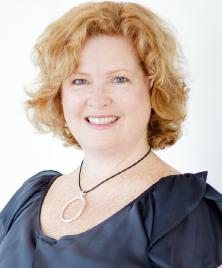
Camille Stell is the President of Lawyers Mutual Consulting & Services and the co-author of the book “RESPECT – An Insight to Attorney Compensation Plans” published in December 2022. Continue this conversation by contacting Camille at camille@ lawyersmutualconsulting.com or 919.677.8900.
Associations need to continually assess and adapt their offerings to align with the evolving needs and expectations of their diverse membership base. For example, at Lawyers Mutual, we spend a great deal of time talking about “value add” for our insureds. We realize that the purchase of an insurance policy is a rather dry (and expensive!) transaction. However, once our insureds meet our people, they tend to become loyal for the life of their law practice.
For us, added value means preventative advice from claims attorneys, free consults in the areas of practice management and succession / retirement planning, as well as the opportunity to develop relationships with our employees who can be personal resources for buyers as they go about the business of buying a malpractice insurance policy, health insurance policy or title insurance policy.
TWO-WAY COMMUNICATION
Effective communication is a cornerstone of member engagement. Associations should establish channels for open and transparent communication, making sure members are informed, feel heard, and are involved in decision-making processes.
Regular feedback mechanisms such as surveys, forums for discussion and one-on-one intentional encounters with members by staff and leadership can enhance communication and help associations understand the evolving needs of their members.
CONTINUED ON NEXT PAGE
PAGE 13 WAKE BAR FLYER • FIRST QUARTER 2024

CREATING A WELCOMING AND GROWTH ORIENTED ASSOCIATION, CONTINUED
BUILDING AN INCLUSIVE AND WELCOMING CULTURE
An inclusive and welcoming culture is crucial for attracting and retaining a diverse membership. It involves intentional efforts to create an environment where every member feels respected, heard and valued. Here are key elements to consider:
DIVERSITY AND REPRESENTATION
Actively promote diversity within the association’s membership, leadership, committees and decision-making bodies. Diverse representation at all levels sends a powerful message about the organization’s commitment to inclusivity.
Celebrate and highlight the diverse backgrounds, experiences and perspectives of your members through telling members’ stories through channels such as member profiles in newsletters, at in-person events and via social media.
Ensure that resources, events and information are accessible to all members, regardless of their backgrounds or abilities. This may involve providing materials in multiple languages, offering accommodations for individuals with disabilities and considering various learning preferences.
Provide training sessions and educational resources that promote awareness and understanding of diversity, equity and inclusion (DEI) issues. This helps members develop cultural competence and fosters a more inclusive environment.
Review and revise association policies to ensure they are inclusive and do not inadvertently create barriers for any members. This includes membership criteria, event participation requirements and any other rules that may impact inclusivity.
Implement inclusive practices in all aspects of association operations, from recruitment and onboarding to event planning and communication strategies.
STRATEGIES FOR CULTIVATING A WELCOMING ATMOSPHERE
Creating a welcoming atmosphere involves intentional efforts and ongoing initiatives. Here are a few strategies to cultivate a sense of belonging and inclusivity.
ONBOARDING AND ORIENTATION
We often think of onboarding and orientation as exercises for new employees rather than new association members. However, developing an onboarding process that introduces new members to the association’s culture, values and available resources can make a difference in member engagement and retention.
Assign mentors or buddy systems to help newcomers navigate the association and establish connections with existing members. Create a “new member” section on the website. Focus on a member benefits in each issue of the newsletter.
NETWORKING OPPORTUNITIES
Networking isn’t just a benefit of association membership; it is the primary
reason members join associations. Facilitate networking events and platforms that encourage members to connect with one another. This could include virtual or in-person events, online forums or special interest groups based on shared characteristics or goals.
Actively promote inclusivity during networking events by implementing icebreakers, ensuring diverse representation in panel discussions and creating an atmosphere that is open and welcoming to all.
COLLABORATIVE DECISION-MAKING
Involve members in decision-making processes, seeking their input on important matters affecting the association. Establish diverse committees and working groups to tackle specific issues, ensuring that a variety of perspectives are considered in the decision-making process.
CONTINUOUS FEEDBACK
Implement regular feedback mechanisms to gauge member satisfaction and identify areas for improvement. This could involve surveys, focus groups or town hall meetings.
Act upon the feedback received, demonstrating the association’s commitment to responsiveness and member-driven initiatives.
EDUCATIONAL PROGRAMMING
Offer educational programs that address relevant topics, providing members with the knowledge and tools to contribute to a more inclusive culture, in addition to the normal course of continued educational opportunities concerning legal skills.
CLEAR COMMUNICATION
Ensure that communication is clear, consistent and accessible to all members. Use inclusive language and imagery in promotional materials, newsletters and other communication channels.
Establish guidelines for respectful and inclusive communication, emphasizing the importance of creating a positive and supportive environment.
Member engagement and the creation of an inclusive and welcoming culture are intertwined aspects that contribute to the success and vibrancy of associations. By prioritizing diversity, equity and inclusion, and implementing strategies to actively engage members, associations can build a sense of community where individuals feel valued, connected and inspired to contribute to the collective goals of the organization. Through continuous efforts and a commitment to fostering an inclusive culture, associations can create a lasting impact that resonates with current and future members, ensuring the sustained growth and relevance of the association in the years to come.
WBF
PAGE 14 WAKE BAR FLYER • FIRST QUARTER 2024
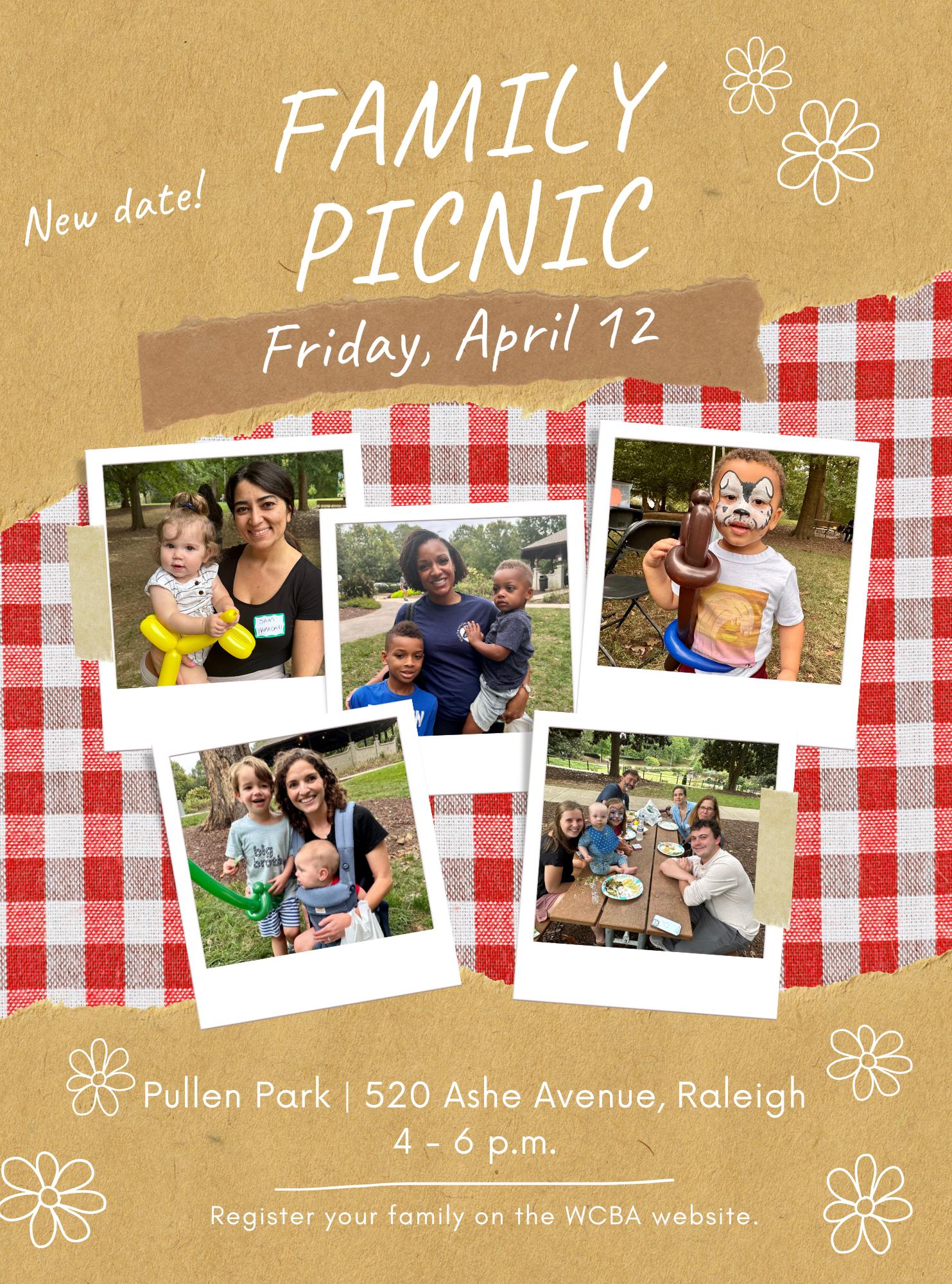

WELCOME NEW MEMBERS
WE WELCOME THE NEWEST MEMBERS TO THE WAKE COUNTY BAR ASSOCIATION
William Alexander | W.G. Alexander & Associates
Ruth Allen | The Walls Law Firm PLLC
Seren Allen | Allen Law Offices PLLC
William Apple | State Employees Credit Union
Jordan Arroyo Barnard | Wake County District Attorneys Office
Ryan Bakelaar | Ellis & Winters LLP
Leigh Barnwell | Federal Trade Commission
Victoria Barquin | Wyrick Robbins Yates & Ponton LLP
Allen Baum | Barnes & Thornburg LLP
Deirdre Beasley | Coats & Bennett PLLC
Gloria Becker | Gloria Becker Law LLC
Jamie Bellomy | Campbell University School of Law
Kylie Beresford | U.S. Bankruptcy Administrator’s Office for E.D.N.C.
Charles Blake | Huggard Obiol & Blake PLLC
Glen Blumhardt | Chambers Ennis & Blumhardt PLLC
Elliot Boerman | Manning Fulton & Skinner PA
Sydney Booker | Brooks Pierce McLendon Humphrey & Leonard LLP
Brandon Brower | McAngus Goudelock & Courie PLLC
Michael Caine | Perkins Coie LLP
De’Von Carter | Truist
David Chambers | Chambers Ennis & Blumhardt PLLC
Dana Chavis | State Employees Credit Union
Frances Clement | Wilson Ratledge PLLC
Mary Catherine Coltrane | Gailor Hunt Davis Taylor & Gibbs, PLLC
Douglas Conant | Bailey & Dixon LLP
Tahlia Cypress | Ragsdale Liggett PLLC
Suzannah Davidson | McAngus Goudelock & Courie PLLC
Arthur DeBaugh | Ward and Smith PA
Robert Desmond | WakeMed Health & Hospitals
Micah Deveaux | Office of Administrative Hearings
Emily Dillow | Underwood & Roberts PLLC
Taylor Dougherty | Parker Poe Adams & Bernstein LLP
Eva Dubuisson | Tharrington Smith LLP
Michael Dunn | Milberg Coleman Bryson Phillips Grossman
Kevin Eddinger | Solo Practitioner
George Ennis | Chambers Ennis & Blumhardt PLLC
Emily Erickson | NC Court of Appeals
Sabra Faires
Amanda Falkenbury | McGuireWoods Consulting
Rebecca Fisher | Tharrington Smith LLP
Ammon Ford | Legal Aid of North Carolina
Lisa Forman | State Employees Credit Union
Mark Frederick | Parker Poe Adams & Bernstein LLP
Franklin Freeman | McGuireWoods Consulting
Joseph Froehlich | JNF Law PC
Eva Frongello | Parker Poe Adams & Bernstein LLP
Gregory Gaskins | Everett Gaskins Hancock LLP
Michael Geiseman | City of Oaks Law
Elizabeth Godfrey | Smith Debnam Narron Drake Saintsing & Myers LLP
Gabrielle Gorman | McAngus Goudelock & Courie PLLC
Evan Gungor
Zesely Haislip | Retired
Berenice Hale | NC State Bar
Andrew Hargrove | Parker Poe Adams & Bernstein LLP
Christina Hayes | Schwartz Law PLLC
Andrew Heath | Nelson Mullins Riley & Scarborough LLP
Matthew Higgins | Wyrick Robbins Yates & Ponton LLP
Christina Hubbard | Law Office of James Scott Farrin
Jeffrey Hudgins | Supreme Court of NC
Meredith Johnson | Law Office of James Scott Farrin
Ethan Johnson | Parker Poe Adams & Bernstein LLP
Nash Joyner | Phelps Dunbar LLP
Lisa Ju | K&L Gates LLP Morrisville
Aislinn Klos | Parker Poe Adams & Bernstein LLP
John Koesters | K&L Gates LLP Morrisville
Kevin Latshaw | Benderson Development Company
Jordan Latta | The Law Office of John T. Benjamin, Jr. PA
Alexander Ligdis | Hedrick Gardner Kincheloe & Garofalo LLP
Timothy Longest | Milberg Coleman Bryson Phillips Grossman
Alice Magnuson | Wyrick Robbins Yates & Ponton LLP
Thomas Mansfield | NC Medical Board
Mary Matney | Campbell University School of Law
Rhian Mayhew | Jordan Price Wall Gray Jones & Carlton PLLC
Damion McCullers | NC District Court
Emery Milliken | NC Department of Health & Human Services
Sheila Minihane | Minihane Law P.C.
Kristin Mitcham | Ward and Smith PA
Whitney Mitchell | The Francis Law Firm
Joseph Morgan | Parker Poe Adams & Bernstein LLP
Natalia Nino | K&L Gates LLP Morrisville
Elizabeth O’Brien | Ogletree Deakins Nash Smoak & Stewart PC
Maura O’Keefe | Tharrington Smith LLP
William Pagan | Coats & Bennett PLLC
Laura Page | Campbell University School of Law
Gavin Parsons | Coats & Bennett PLLC
R. Patty | Phelps Dunbar LLP
John Perry | Ward and Smith PA
Suzanne Plunket | Underwood & Roberts PLLC
Telana Poe | Whitley Law Firm
Emily Ramdial | McAngus Goudelock & Courie PLLC
Kim Randolph | Baker Donelson Bearman Caldwell & Berkowitz PC
Deb Rasmussen | Stam Law Firm PLLC
Margaret Raymer | Tharrington Smith LLP
Dylan Reel | McGuireWoods Consulting
John Riley | Martin & Jones PLLC
Joshua Rogers
Pouria Saidi | The Saidi Firm
Robert Saunders | Brooks Pierce McLendon Humphrey & Leonard LLP
Tara | Seidel | Envisage Law
Hazheen Selevany | Legal Aid of North Carolina
Emily Shanks | State Employees Credit Union
Sydney Smith | Ward and Smith PA
Cynthia Smith | Cree Inc.
Chanon Smith | Pettey & Partrick
Deborah Stern | Parker Poe Adams & Bernstein LLP
Robert Stolz | F3V, LLC
Andrew Stormer | State Employees Credit Union
Caleb Sweazey | Envisage Law
Heather Tabor | Brownlee Whitlow & Praet PLLC
Joseph Taylor | Michael Best & Friedrich LLP
Lindsay Teasley | Sterling Law
Lauren Toole | Wake County Public Defenders Office
Genesis Torres | Ward and Smith PA
Clarence Turpin | 7th Prosecutorial District
Walter Tuttle | Burns Day & Presnell PA
Ashley Urquijo | Ogletree Deakins Nash Smoak & Stewart PC
Alexander Walton | StephensonLaw LLP
Joshua Warrum | Project X Media, Inc.
Lauren Watson | Wyrick Robbins Yates & Ponton LLP
Britney Weaver | Morningstar Law Group
Maya Weinstein | Tharrington Smith LLP
James Whalen | Brooks Pierce McLendon Humphrey & Leonard LLP
Jessica Wilkie | Hansen Howell & Wilkie PLLC
Kristen Wills | Brownlee Whitlow & Praet PLLC
Anna Worley | NC District Court
Nicholas Xanthopoulos
PAGE 16 WAKE BAR FLYER • FIRST QUARTER 2024
